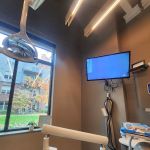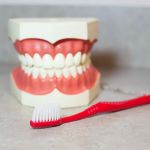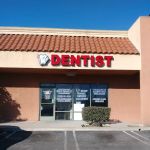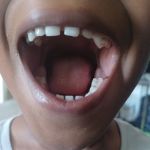How to Handle a Dental Emergency at Night
- 1. Stay Calm and Assess the Situation
- 2. Common Dental Emergencies at Night
- 3. Immediate Actions You Can Take
- 4. When to Call a Dental Professional
- 5. Preventing Dental Emergencies in the Future
1. Stay Calm and Assess the Situation
Dealing with a dental emergency at night can be overwhelming, but staying calm is the first step toward managing the situation. Whether you’re experiencing a severe toothache, a knocked-out tooth, or bleeding gums, take a few moments to assess the situation carefully. Understanding the severity of the problem will help you decide the best course of action and whether you can handle it on your own or need professional help.
2. Common Dental Emergencies at Night
Dental emergencies can occur at any time, but at night, you may feel more isolated due to limited access to dental care. Here are a few common dental emergencies people experience at night:
- Severe Toothache: One of the most common dental emergencies, a toothache can be caused by various factors, such as cavities, infections, or gum disease.
- Knocked-Out Tooth: Accidents or falls can cause a tooth to be knocked out, which requires quick intervention to possibly save the tooth.
- Lost Filling or Crown: If a filling or crown comes loose, it can expose the tooth to further damage and discomfort.
- Abscess or Infection: A dental abscess is a pocket of pus caused by bacterial infection, which can cause severe pain and swelling.
Each of these situations requires prompt attention, and knowing how to react can reduce pain and minimize further damage.
3. Immediate Actions You Can Take
In many cases, you can take immediate actions to alleviate the situation until you can see a dentist. Here are a few tips on what to do:
- For Severe Toothaches: Rinse your mouth with warm saltwater to reduce swelling and clean the affected area. Over-the-counter pain relievers like ibuprofen can help alleviate the pain temporarily.
- For a Knocked-Out Tooth: If you can find the tooth, handle it carefully by the crown (top part), not the root. Rinse it gently in water and try to place it back into the socket. If that’s not possible, store it in milk or a saline solution and seek professional help immediately.
- For a Lost Filling or Crown: If a filling or crown falls out, place it back temporarily with a dental adhesive or sugar-free gum until you can see a dentist.
- For Abscesses or Infections: To reduce swelling and pain from an abscess, apply a cold compress to the affected area. Avoid touching the abscess, as it may be infected. Rinse your mouth with warm saltwater to help draw out infection.
These steps can help manage the emergency until you can get professional care, but they are not long-term solutions.
4. When to Call a Dental Professional
If you’re experiencing a severe dental emergency at night, it’s essential to know when to call a dental professional. Many dental offices offer emergency care or after-hours services to assist with urgent situations. Here are some instances when you should definitely call a dentist:
- Severe pain: If the pain is unbearable and not relieved by over-the-counter medications, it’s time to call a dentist.
- Bleeding that won’t stop: If you’re experiencing persistent bleeding after an injury or infection, you need immediate dental attention.
- Knocked-Out Tooth: Time is critical when a tooth is knocked out. The quicker you seek help, the higher the chance the tooth can be re-implanted successfully.
When in doubt, always err on the side of caution and contact a dental professional for advice on how to proceed.
5. Preventing Dental Emergencies in the Future
While you can’t always prevent accidents, maintaining a proper oral care routine can significantly reduce the chances of dental emergencies. Here are a few steps you can take to protect your teeth:
- Regular dental checkups: Schedule regular visits to your dentist to catch problems early before they become emergencies.
- Wear a mouthguard: If you play contact sports, always wear a mouthguard to protect your teeth from injury.
- Practice good oral hygiene: Brush and floss daily to prevent cavities, gum disease, and infections that can lead to emergencies.
- Avoid harmful habits: Refrain from chewing on hard objects like ice or pens, as they can crack teeth and lead to fractures.
By following these preventative measures, you can minimize the risk of dental emergencies in the future and keep your smile healthy.
If you’re dealing with a dental emergency and need professional care, visit Dentistry Toothtruth for more information and to schedule an emergency consultation.







 Smiles 'R' Us Dentistry4.0 (254 review)
Smiles 'R' Us Dentistry4.0 (254 review) First Choice Dental- Madison East4.0 (289 review)
First Choice Dental- Madison East4.0 (289 review) Lincolnshire Dental Care4.0 (154 review)
Lincolnshire Dental Care4.0 (154 review) Advanced Dental Care of Riverdale4.0 (339 review)
Advanced Dental Care of Riverdale4.0 (339 review) Baldwin Park Family Dentistry4.0 (16 review)
Baldwin Park Family Dentistry4.0 (16 review) South Bay Children's Health Center5.0 (106 review)
South Bay Children's Health Center5.0 (106 review) The Importance of Oral Health Education During Pregnancy for a Healthy Pregnancy
The Importance of Oral Health Education During Pregnancy for a Healthy Pregnancy Best Tips for Brushing Your Teeth Properly for Healthy Gums: Essential Techniques for Oral Health
Best Tips for Brushing Your Teeth Properly for Healthy Gums: Essential Techniques for Oral Health Why Skipping Dental Checkups Can Lead to Bigger Oral Health Problems
Why Skipping Dental Checkups Can Lead to Bigger Oral Health Problems Advantages of Porcelain Dental Restorations
Advantages of Porcelain Dental Restorations How Can Diabetes Cause Tooth and Gum Problems? Preventing and Managing Oral Health Issues
How Can Diabetes Cause Tooth and Gum Problems? Preventing and Managing Oral Health Issues Healthy Habits for Promoting Good Oral Health and Hygiene: Tips for a Healthy Smile
Healthy Habits for Promoting Good Oral Health and Hygiene: Tips for a Healthy Smile